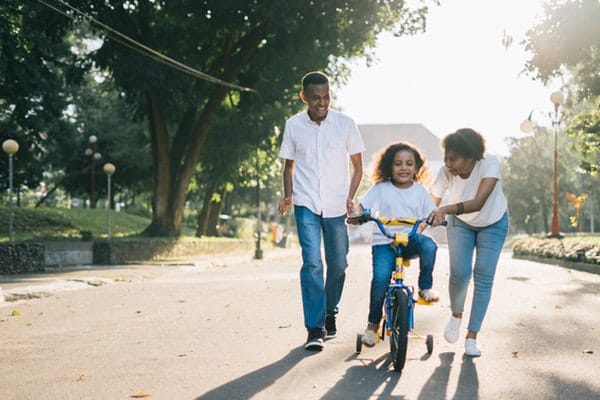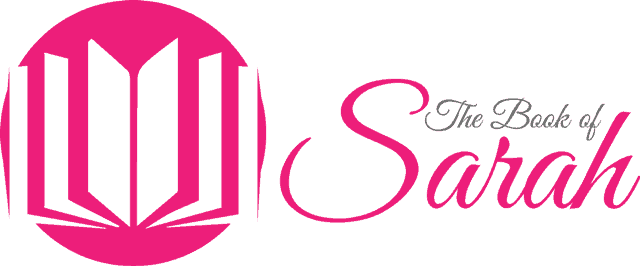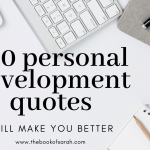How to become a fully functioning person using self-awareness exercises
A fully functioning person is one who is in touch with their inner self. They have self-knowledge, understand their desires, potential and emotions and live a full life according to their own terms.
Personal development is largely based on self-awareness. Once you improve on your self-awareness, you become in charge of your life.
Self-awareness helps you manage and be in control of your emotions. It also helps you create better relationships with others since you can only be empathic with others only when you are self-aware.
It is through self-awareness that you can work on building your self-confidence, increase your self-worth, become less awkward in social situations and be at peace with yourself.
Self-awareness is a process, you don’t wake up one day and suddenly you are self-aware. You build up self-awareness by going through some self-awareness exercises that help you get into introspection and gain a better understanding of who you are.
I am introducing these self-awareness exercises to help you gain an understanding of your past, present, and potential so you can become a fully functional individual and live a full life.
What makes a fully functional person?
According to Carl Rogers, we become a fully functional person who enjoys the good life when;
- We are fully open to new experiences
- Live in the present moment
- Trust ourselves
- Take responsibility for our choices
- Treat others with unconditional positive regard
Fully open to new experiences
 A healthy mental state is not fixed, and we cannot wake up one day and say we are in a perfect place. We are all work in progress.
A healthy mental state is not fixed, and we cannot wake up one day and say we are in a perfect place. We are all work in progress.
We say we have a healthy concept of ourselves and of life when we are open to new possibilities. We are aware that life is constantly changing and we are ready to change with it.
The reason we exist is not so as we can reach a certain destination. It is about enjoying the present state. This means we have to be constantly open to everything that occurs and allow our fullest abilities to function so that we get satisfaction from our experiences.
Live in the present moment
If we hold onto our own ideas of how things should be rather than accepting how they really are, we arise conflict in ourselves in the form of defensiveness- Carl Rogers.
 We need to live and accept things as they are now not what we think or prefer they should be. We should accept things for what they are and not what they should be and that way, we have a healthy mental state.
We need to live and accept things as they are now not what we think or prefer they should be. We should accept things for what they are and not what they should be and that way, we have a healthy mental state.
When we construct how things should be in our mind, and fail to appreciate what they really are, we deny ourselves happiness and living in the present.
To be a fully functional person, try not to construct our own notions of how things should be but accept them for what they really are.
Trust ourselves
 We cannot fully trust ourselves if we don’t have awareness and our understanding of self. The more you move towards opening up your emotions and openness to new opportunities, the more you learn to trust yourself.
We cannot fully trust ourselves if we don’t have awareness and our understanding of self. The more you move towards opening up your emotions and openness to new opportunities, the more you learn to trust yourself.
You learn to rely on yourself and your instincts and trust that you trust your decision-making capabilities more. You see, the more you open yourself to experiences, the more you learn to trust that even more experiences are good for you and the more you expand your world.
Trusting yourself means also not to be so hard on yourself and accepting that sometimes your authentic self needs some time alone or a different experience.
According to Rogers, you trust yourself ‘not because you are unfailing, but because you are open to the consequences of your actions and ready to take responsibility’.
Taking responsibility for your actions
 What we choose to think or do is up to us. When you trust yourself, you take responsibility for your actions. You do and say things because you are confident in yourself and don’t hold resentment to others for influencing you to say or do something.
What we choose to think or do is up to us. When you trust yourself, you take responsibility for your actions. You do and say things because you are confident in yourself and don’t hold resentment to others for influencing you to say or do something.
When we act according to other people’s expectations, we tend to resent them. However, when we make our own actions without external influence, it is our role to take responsibility for the choices that we have made, no matter the consequences.
When our choices and our actions are our own, we feel more authentic and in charge of our own destiny and that makes us fully functional beings.
Unconditional personal regard
 Carl Rogers believed that people are inherently good, and any mental and emotional challenges that we face are a natural progression of human nature. As a result, he believed that we need to hold ourselves and others with unconditional personal regard.
Carl Rogers believed that people are inherently good, and any mental and emotional challenges that we face are a natural progression of human nature. As a result, he believed that we need to hold ourselves and others with unconditional personal regard.
This means that we have to accept ourselves, and others unconditionally. Sometimes, we hold conditions that dictate how we accept ourselves and others.
For example, saying ‘I will feel good about myself when I achieve a certain weight’ means you will only love yourself when you achieve this desirable weight loss.
When we put conditions, we show others that we will only love them when they achieve certain standards such as a school grade or behave in a certain way. We base self-worth and regard for others depending on how they behave or appear rather than for who they really are.
Rogers shows that fully functional people accept ourselves and others without conditions or what he terms as ‘conditions for worth’.
When we are accepting of ourselves, we also become more patient with ourselves. We realize that we are a work in progress and we need not be too hard on ourselves for not being a certain way, yet.
When we have more acceptance with ourselves, we experience less unhealthy pressure on ourselves. We worry less, don’t feel inferior, stop comparing ourselves to others and criticize ourselves less. As a result, we become more functional and productive beings.
How to develop self-awareness and become a fully functional individual
Now that you know what it takes to becomes a fully functioning person, let us look at self-awareness exercises that will help you develop self-awareness and strive to become a fully functioning individual.
Here are the elements we need to explore in order to become more self-aware.
Gain self-awareness by exploring your identity
In order to explore your self-awareness, we need to start with your identity. Who are you?
Identity is determined by
- Your childhood experiences
- Family and background
- Personality
- Self-concept
1. Your childhood experiences
 Even without knowing it, our childhood has an effect on the person we are today. We start developing a self-concept when we are babies. Our childhood influences the kind of self-concept that we develop.
Even without knowing it, our childhood has an effect on the person we are today. We start developing a self-concept when we are babies. Our childhood influences the kind of self-concept that we develop.
For example, abuse can make us develop a low self-concept since we tend to think that we are not worthy and grow up feeling this way. On the same note, support and encouragement from our parents help us develop a high self-concept and feeling that we are loved and so we grow up confident and with high self-worth.
Our childhood also contributes to the kind of personality we develop. Our personality is as a result of our genes and the environment we grow up in.
Take this downloadable self-awareness exercise to help you explore your childhood and gain self-knowledge.
2. Family and background
 Just as our childhood affects our identities today, so do the families we grow up in. this self-awareness exercise will help you understand the people that matter to you, how you relate with them. If your relationship is good, why is it so? If your relationship is poor, why is it so?
Just as our childhood affects our identities today, so do the families we grow up in. this self-awareness exercise will help you understand the people that matter to you, how you relate with them. If your relationship is good, why is it so? If your relationship is poor, why is it so?
What are your greatest fears relating to your family? Understanding fears helps you realize what’s important to you and where your priorities lie. As a result, this form of awareness helps influence your decisions.
3. Your personality
 Have you taken the Myers Briggs personality test? Are you aware of Myers Briggs personality? Read all about it and take a personality test to find out your temperament. Understanding your personality will shed so much light on your life.
Have you taken the Myers Briggs personality test? Are you aware of Myers Briggs personality? Read all about it and take a personality test to find out your temperament. Understanding your personality will shed so much light on your life.
I asked my friends to take personality tests and one of them wrote how understanding their personality helped in her self-awareness journey.
Take the personality test and find out more about yourself
4. Your self-concept
 According to Carl Rogers, our self-concept has three components. These are;
According to Carl Rogers, our self-concept has three components. These are;
- Self-image
- Self-esteem
- Ideal self
a) Self-image
Self-image is how we see ourselves. It includes physical descriptions, social roles and personal traits.
- Physical description
How do you see yourself physically? I am tall/short. I am light skin/dark skin. And the like.
- Social roles
What role do you play in society? Depending on your upbringing, society has given us some form of social roles. For example, I am a student, I am a mother, I am a wife, I am a daughter. I am a member of this club. I am a feminist.
- Personal traits
These are traits that describe you such as I am generous, funny, introverted, socially
b) Self-esteem
This is the value you place on yourself. It also means your self-worth. How do you accept yourself and approve of yourself? One can either have positive or negative self-esteem.
When you have high self-esteem, you tend to be more self-accepting, confident, positive and optimistic and not too concerned about what others think of you. Negative or low self-esteem, on the other hand, can lead to low confidence, too much worry and concern of others’ view of you, lack of optimism or not accepting yourself for who you really are.
c) Ideal self
The ideal self is how or what you would like to be. A conflict between who you are now and what you’d like to be can affect your esteem.
For example, you want to be successful but you don’t feel so successful today can affect your mental state and your esteem. Your ideal self, therefore, should be congruent with your self-image.
This means when your self-image is close or similar to your ideal self, and there is an overlap, you are happier. It means your ideal self is achievable and you can self-actualize.
Take this self-concept exercise and understand your self-concept. Fill in how you feel about yourself, your esteem and image. I have provided the instructions in the exercise to guide you through.
After every self-awareness exercise is a guide to show the lessons learned and how these contribute to your self-awareness.
You can also take the whole self-awareness guide/course for free which includes videos, presentations and exercises to help you discover more about yourself.
All these exercises and courses are downloadable. Download here.






Comments